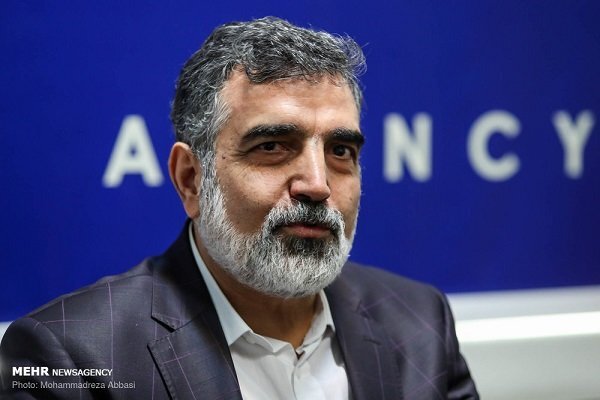Iran urges IAEA not to rely on unreliable information

TEHRAN - Behrooz Kamalvandi, spokesman for the Atomic Energy Organization of Iran (AEOI), has said that the International Atomic Energy Agency must not give credit to unreliable information propagated through “spying activities”.
“The agency must not rely on and give credit to the information that have been reached through spying activities and unreliable sources,” the Mehr news agency quoted Kamalvandi as saying in an article published on Saturday.
The 35-member IAEA board of governors passed a resolution on Friday demanding access to two old places it claimed nuclear work may have been done there.
Kamalvandi wrote, “In fact, any request for transparency or complementary access by the agency based on fake evidence are against the agency’s charter. So, it does not make any obligation for Iran to fulfil such requests.”
Unreliable source and information must not become a justification and legal basis to put pressure on other countries and level accusations against them, he added.
“Accepted obligations under the JCPOA [the 2015 nuclear deal] do not mean that any question of the agency must be answered, otherwise, we would face many questions which are based on fake documents,” the nuclear official noted.
He also said the IAEA must respect the countries’ sovereignty.
Kazem Gharibabadi, Iran’s ambassador to the IAEA, said on Friday that Iran will take appropriate action in response to the move taken by the IAEA board in adopting the anti-Iran resolution.
“Iran categorically deplores this resolution and will take appropriate action in response, the repercussions of which would be upon the sponsors of this resolution,” Gharibabadi said in a statement.
Russia and China, who voted against the resolution, also issued separate statements on Friday reprimanding the move.
“The #IAEA BG adopted resolution calling upon #Iran to provide access to 2 locations specified by Agency. #Russia and #China voted against. While stressing the need for Tehran and IAEA to settle this problem without delay, we believe that the resolution can be counterproductive,” tweeted Mikhail Ulyanov, Russia’s permanent representative to the IAEA.
Permanent Mission of China in Vienna also said, “China deeply regrets at the adoption, today, of IAEA Board Resolution on Iran’s safeguards implementation, with the caveat of such a move’s huge implications on the prospect of the #JCPOA. China & Russia voted against the above resolution.”
France, Britain, and Germany, the three European parties to the 2015 nuclear deal, submitted the draft resolution to the IAEA board on Thursday. The board failed to approve the resolution on Thursday due to opposition by Iran and China. However, the resolution was ratified on Friday despite Russia and China’s opposition.
Iranian Foreign Minister Mohammad Javad Zarif also reacted strongly to the resolution late on Friday, saying the three European countries, known as E3, are absolutely powerless against the U.S. coercion.
“E3 must stop public face-saving and muster the courage to state publicly what they admit privately, their failure to fulfill even own JCPOA duties due to total impotence in resisting the US bullying behind the facade, E3 are accessories to Trump and Netanyahu—and in no position to counsel Iran,” Zarif wrote on his Twitter account.
Experts are of the opinion that the resolution was proposed under pressure by the Trump administration and Israeli Prime Minister Benjamin Netanyahu, a fierce opponent of the 2015 nuclear deal.
NA/PA
